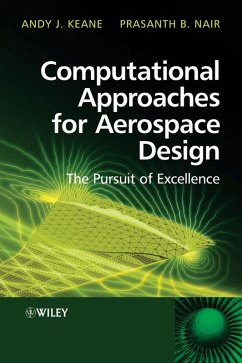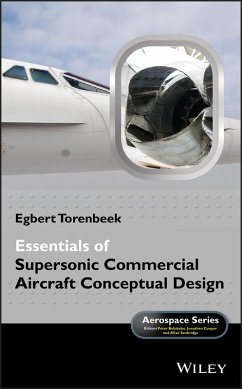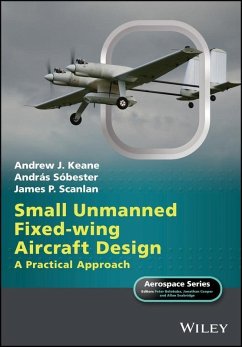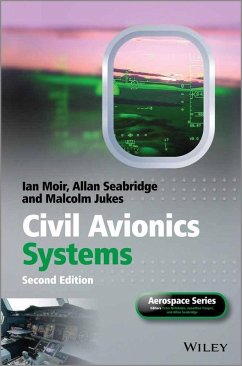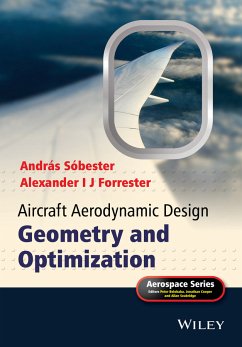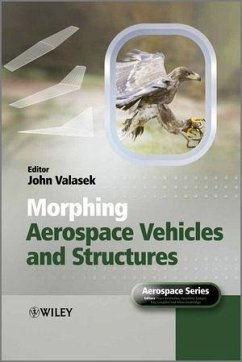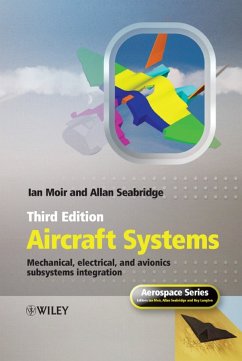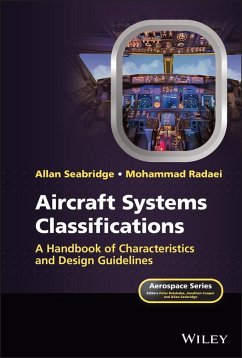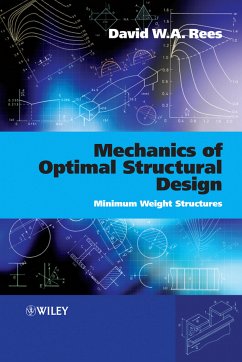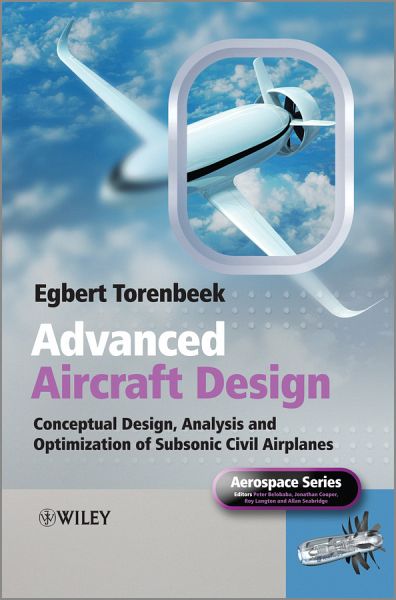
Advanced Aircraft Design (eBook, PDF)
Conceptual Design, Analysis and Optimization of Subsonic Civil Airplanes
Versandkostenfrei!
Sofort per Download lieferbar
94,99 €
inkl. MwSt.
Weitere Ausgaben:

PAYBACK Punkte
0 °P sammeln!
Although the overall appearance of modern airliners has not changed a lot since the introduction of jetliners in the 1950s, their safety, efficiency and environmental friendliness have improved considerably. Main contributors to this have been gas turbine engine technology, advanced materials, computational aerodynamics, advanced structural analysis and on-board systems. Since aircraft design became a highly multidisciplinary activity, the development of multidisciplinary optimization (MDO) has become a popular new discipline. Despite this, the application of MDO during the conceptual design p...
Although the overall appearance of modern airliners has not changed a lot since the introduction of jetliners in the 1950s, their safety, efficiency and environmental friendliness have improved considerably. Main contributors to this have been gas turbine engine technology, advanced materials, computational aerodynamics, advanced structural analysis and on-board systems. Since aircraft design became a highly multidisciplinary activity, the development of multidisciplinary optimization (MDO) has become a popular new discipline. Despite this, the application of MDO during the conceptual design phase is not yet widespread.
Advanced Aircraft Design: Conceptual Design, Analysis and Optimization of Subsonic Civil Airplanes presents a quasi-analytical optimization approach based on a concise set of sizing equations. Objectives are aerodynamic efficiency, mission fuel, empty weight and maximum takeoff weight. Independent design variables studied include design cruise altitude, wing area and span and thrust or power loading. Principal features of integrated concepts such as the blended wing and body and highly non-planar wings are also covered. The quasi-analytical approach enables designers to compare the results of high-fidelity MDO optimization with lower-fidelity methods which need far less computational effort. Another advantage to this approach is that it can provide answers to "what if" questions rapidly and with little computational cost.
Key features:
Advanced Aircraft Design: Conceptual Design, Analysis and Optimization of Subsonic Civil Airplanes advances understanding of the initial optimization of civil airplanes and is a must-have reference for aerospace engineering students, applied researchers, aircraft design engineers and analysts.
Advanced Aircraft Design: Conceptual Design, Analysis and Optimization of Subsonic Civil Airplanes presents a quasi-analytical optimization approach based on a concise set of sizing equations. Objectives are aerodynamic efficiency, mission fuel, empty weight and maximum takeoff weight. Independent design variables studied include design cruise altitude, wing area and span and thrust or power loading. Principal features of integrated concepts such as the blended wing and body and highly non-planar wings are also covered. The quasi-analytical approach enables designers to compare the results of high-fidelity MDO optimization with lower-fidelity methods which need far less computational effort. Another advantage to this approach is that it can provide answers to "what if" questions rapidly and with little computational cost.
Key features:
- Presents a new fundamental vision on conceptual airplane design optimization
- Provides an overview of advanced technologies for propulsion and reducing aerodynamic drag
- Offers insight into the derivation of design sensitivity information
- Emphasizes design based on first principles
- Considers pros and cons of innovative configurations
- Reconsiders optimum cruise performance at transonic Mach numbers
Advanced Aircraft Design: Conceptual Design, Analysis and Optimization of Subsonic Civil Airplanes advances understanding of the initial optimization of civil airplanes and is a must-have reference for aerospace engineering students, applied researchers, aircraft design engineers and analysts.
Dieser Download kann aus rechtlichen Gründen nur mit Rechnungsadresse in D ausgeliefert werden.




